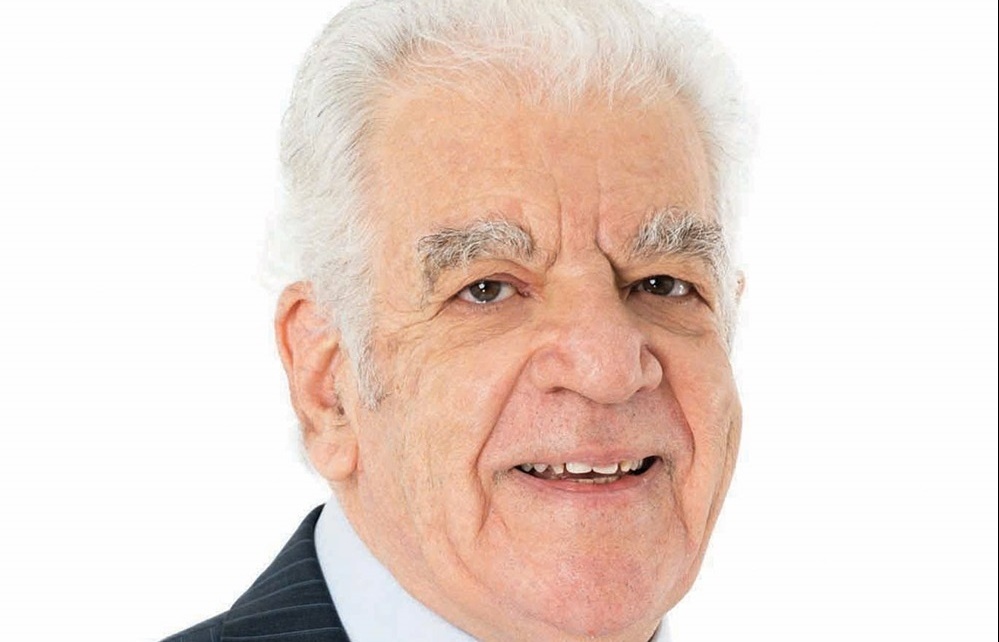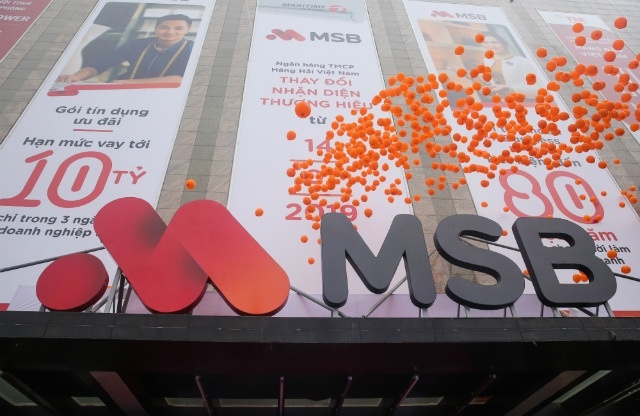VBF provides momentum for action

After much discussion the local and foreign business community wants to government action
to get the economy moving again
During the forum’s initial development phase since the transfer, what has been done to strengthen the VBF’s structure and activities?
We, as the representative group of the local and international business community, have brainstormed and implemented numerous initiatives to enhance and promote the VBF’s productivity and visibility, in a vibrant new development stage for the Consortium.
Working groups’ activities were strengthened with the establishment of an Automotive Sector Working Group with the participation of major auto industry players. We also would like to report that the newly established Customs Working Group is looking to set up a direct and regular dialogue between the General Department of Customs and business community. Furthermore, a governance and transparency working group has been activated to bring international governance and transparency best practices to Vietnam to increase businesses’ confidence in Vietnam’s long-term sustainable development.
In terms of structure, the VBF Consortium officially welcomed two associate members in 2012 and early 2013, the Swiss Business Association in Vietnam and Indian Chamber of Business in Vietnam. This underlines the business community’s recognition that a united and strongly committed Consortium can help champion a favourable investment climate in Vietnam.
The VBF Consortium also has a new management board, led by two co-chairmen as was the case last year, VCCI’s chairman Dr. Vu Tien Loc and myself, to guarantee the forum’s stability during this transitional phase. The other board members represent AmCham, JBAV, KorCham and IFC, which offers us a good combination of domestic and foreign business representation and a voice for major investors in Vietnam.
Can we expect any new features at this week’s mid-term VBF 2013?
The theme of this mid-term VBF will be to deliver the business community’s key message to the government: “New phase of economic reform – From Agenda to Action”. We want to tell the government that now is the time for immediate and timely actions to bring about positive outcomes for the economy.
In this regard, the VBF Consortium has been actively working to introduce a modification to the forum’s format that we believe will encourage fresh participation from the forum participants. The forum will pilot a Q&A session to allow VBF Consortiums’ chambers of commerce and business associations to have a unique chance to pose questions, concerning their members’ most pressing issues, and receive responses from government bodies. We are looking forward to decent and frank responses from the government and hope this initiative will bring vibrant energy to the forum.
Besides, the working groups have been proactively meeting with relevant ministries and line government agencies to discuss outstanding sector issues which have generated public debate and concerns, such as fund raising difficulties for Vietnamese companies, foreign shareholdings, non-performing loan resolutions, inventory resolutions, state-owned enterprise (SOE) reforms, work permits and the visa waiver policy, among others.
Action will be a key theme of the upcoming mid-term VBF. But, what specific action is needed to remove obstacles faced by businesses?
First of all, let me highlight some noticeable progress that has been made. For example, in eliminating certain non-tariff trade barriers, the “automatic import licensing” process for targeted goods has been suspended, the two-port rule has been abolished, the Economic Needs Test (ENT) has been limited in its scope and Vietnam applied to accede to the Apostille Convention, all issues we’ve urged it to do at the previous VBF.
Regarding access to capital, there are plenty of foreign funds eager to invest in the development of Vietnamese enterprises, but the issue of when market access limitations apply to those enterprises after they have taken foreign capital investment is still unresolved. This is discouraging investment. Local and central authorities are divided on the issue and their positions are inconsistent. Five years after WTO accession, it is time to have a coherent set of rules on what constitutes a “foreign-invested enterprise” for purposes of the market access and national treatment limitations.
We believe that up to 49 per cent foreign investment in most cases should be considered a Vietnamese company.
Looking at banking issues, you may remember that last December, the VBF Banking Group presented recommendations for handling the current banking situation. The VAMC is a good initiative to address the bad debts issue, but its effectiveness is still to be seen.
The recent announcement of the delay in implementing Circular 02 is on the other hand, disappointing. Banks should be encouraged to voluntarily comply with Circular 02 where possible.
Regarding SOE reforms, the government badly needs capital for infrastructure, power and other basic state functions. However, huge amounts of capital are tied up in non-core businesses like hotel groups and property or banking. It’s time to accelerate the process and sell these off, or at least securitise them and list them on the securities exchange.
Many foreign investors are certainly interested in buying shares in SOEs, but it should be made clear and transparent to increase M&A flows.
In the tourism field, the visa exemptions given to short-term visitors have contributed new FDI to Vietnam. The plan to withdraw this will adversely affect the number of tourists and the amount of FDI. We strongly advise the government to continue this exemption policy.
Infrastructure remains a key bottleneck in Vietnam economic development and we have questions about frequent delays and the lack of implementation, even when Japanese ODA or Korean financing has been made available. Again, transparency and straightforward implementation should be the main driver.
As I am representing foreign investors in my role as co-chair of the VBF Consortium, I would like emphasise that it is important for Vietnam to take the chance to join the Trans Pacific Partnership (TPP) and conclude the EU-Vietnam Free Trade Agreement (FTA). The EU and US are two main export destinations and the agreements will help reduce inventory levels and expand exports. AmCham and EuroCham will certainly address this during the mid-term VBF 2013.
What the stars mean:
★ Poor ★ ★ Promising ★★★ Good ★★★★ Very good ★★★★★ Exceptional
Latest News
More News
- Envision Energy eyeing wind power investments in Lam Dong (April 16, 2025 | 17:21)
- New facilities back up high-tech FDI wave (April 16, 2025 | 15:42)
- Startups recognising Vietnam’s cost-effectiveness (April 16, 2025 | 15:36)
- VIPC Summit 2025 to call for more investment in innovation and startups (April 16, 2025 | 11:39)
- Vietnam mulls scaling investment approval authority for nuclear projects (April 15, 2025 | 10:54)
- FECON and PowerChina to develop key infrastructure (April 14, 2025 | 17:07)
- Strong tailwinds lift Vietnam’s aviation sector (April 14, 2025 | 17:04)
- Meiko Electronics prepares to expand PCB manufacturing plant (April 14, 2025 | 12:25)
- New regulations could help legitimise digital assets (April 12, 2025 | 08:13)
- Lego opens its 'most environmentally sustainable' plant in Binh Duong (April 10, 2025 | 09:30)
















 Mobile Version
Mobile Version